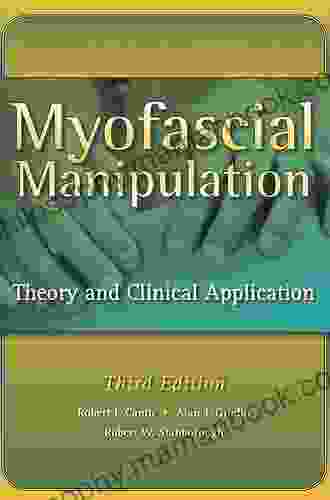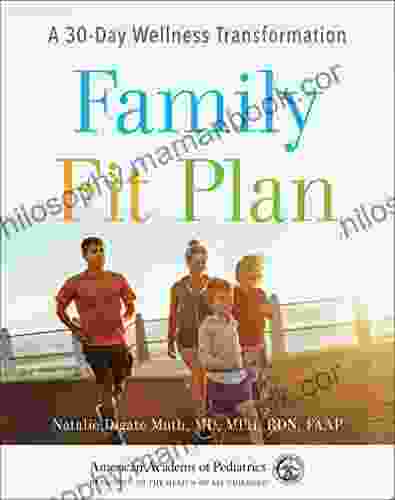Unveiling the Potential: Developmental Speech Language Training Through Music for Children with Autism

Autism spectrum disorder (ASD) is a neurodevelopmental condition that affects communication, social interaction, and behavior. Children with ASD often experience challenges in language development, making it difficult for them to express their thoughts and feelings effectively. Music, with its inherent ability to engage and stimulate the brain, has emerged as a promising tool in developmental speech language training for children with ASD.
5 out of 5
| Language | : | English |
| File size | : | 2981 KB |
| Text-to-Speech | : | Enabled |
| Screen Reader | : | Supported |
| Enhanced typesetting | : | Enabled |
| Print length | : | 188 pages |
The Power of Music in Language Development
Music plays a significant role in human communication and language processing. The rhythmic structure, melodic patterns, and lyrics of music provide a rich environment for children to explore and develop their language skills. Here's how music benefits language development in children with ASD:
- Enhances Auditory Processing: Music engages the auditory system, improving children's ability to discriminate between sounds, identify speech patterns, and understand language.
- Promotes Vocalization and Expression: Singing and playing musical instruments encourage children to use their voices and express themselves, enhancing their vocal skills and confidence.
- Improves Social Communication: Music provides a shared experience for children with ASD and their peers or therapists, fostering social interaction and communication skills.
- Facilitates Language Comprehension: The lyrics of songs contain language structures, vocabulary, and grammar that children can learn in a meaningful and enjoyable context.
Music-Based Speech Language Therapy Techniques
Developmental speech language training through music incorporates various evidence-based techniques to address the specific language challenges faced by children with ASD:
- Melodic Intonation Therapy (MIT): MIT uses exaggerated melodic patterns to enhance speech intelligibility and prosody in children with ASD.
- Musical Therapy Interventions: These interventions focus on engaging children in music-making activities, such as singing, playing instruments, and creating songs, to promote language development.
- Auditory-Verbal Therapy (AVT): AVT combines auditory stimulation with verbal language training to improve children's auditory processing skills and speech production.
- Synchronization Training: This technique uses music with a steady beat to help children with ASD improve their motor coordination and speech rhythm.
Benefits of Music-Based Speech Language Training
Numerous studies have demonstrated the effectiveness of music-based speech language training for children with ASD. These benefits include:
- Improved Language Skills: Children show significant improvements in their verbal expression, vocabulary, and grammar.
- Enhanced Communication: Music therapy helps children develop their social communication skills, such as initiating conversations and responding appropriately.
- Increased Social Interaction: Music provides a platform for children with ASD to interact with others and build relationships.
- Reduced Repetitive Behaviors: Music therapy can help reduce repetitive behaviors, such as echolalia and stimming, associated with ASD.
Implementation of Music-Based Speech Language Training
To effectively implement music-based speech language training, consider the following steps:
- Assessment: Conduct a thorough assessment of the child's speech language abilities and communication needs.
- Individualized Plan: Develop an individualized therapy plan based on the assessment results, incorporating appropriate music-based techniques.
- Qualified Therapist: Partner with a qualified music therapist or speech language pathologist experienced in music-based interventions for ASD.
- Regular Sessions: Schedule regular therapy sessions to ensure consistent progress and generalization of skills.
- Collaboration: Work closely with parents and other caregivers to continue the training at home and support the child's progress.
Developmental speech language training through music empowers children with autism by improving their language skills, enhancing their communication abilities, and fostering their social development. By harnessing the transformative power of music, we can unlock their potential and provide them with the foundation they need to succeed in life.
Image Alt Attribute: A young child with autism engaged in a music-based speech language therapy session, smiling and playing a musical instrument.
5 out of 5
| Language | : | English |
| File size | : | 2981 KB |
| Text-to-Speech | : | Enabled |
| Screen Reader | : | Supported |
| Enhanced typesetting | : | Enabled |
| Print length | : | 188 pages |
Do you want to contribute by writing guest posts on this blog?
Please contact us and send us a resume of previous articles that you have written.
 Top Book
Top Book Novel
Novel Fiction
Fiction Nonfiction
Nonfiction Literature
Literature Paperback
Paperback Hardcover
Hardcover E-book
E-book Audiobook
Audiobook Bestseller
Bestseller Classic
Classic Mystery
Mystery Thriller
Thriller Romance
Romance Fantasy
Fantasy Science Fiction
Science Fiction Biography
Biography Memoir
Memoir Autobiography
Autobiography Poetry
Poetry Drama
Drama Historical Fiction
Historical Fiction Self-help
Self-help Young Adult
Young Adult Childrens Books
Childrens Books Graphic Novel
Graphic Novel Anthology
Anthology Series
Series Encyclopedia
Encyclopedia Reference
Reference Guidebook
Guidebook Textbook
Textbook Workbook
Workbook Journal
Journal Diary
Diary Manuscript
Manuscript Folio
Folio Pulp Fiction
Pulp Fiction Short Stories
Short Stories Fairy Tales
Fairy Tales Fables
Fables Mythology
Mythology Philosophy
Philosophy Religion
Religion Spirituality
Spirituality Essays
Essays Critique
Critique Commentary
Commentary Glossary
Glossary Bibliography
Bibliography Index
Index Table of Contents
Table of Contents Preface
Preface Introduction
Introduction Foreword
Foreword Afterword
Afterword Appendices
Appendices Annotations
Annotations Footnotes
Footnotes Epilogue
Epilogue Prologue
Prologue S E Weir
S E Weir Avishek Gupta
Avishek Gupta Oz Montgomery
Oz Montgomery Michael Gurian
Michael Gurian David A Bainbridge
David A Bainbridge Dale Merrill
Dale Merrill Kingsley Amis
Kingsley Amis Barry C Lynn
Barry C Lynn Ric Edelman
Ric Edelman Gaby Morgan
Gaby Morgan Tyler Gordon
Tyler Gordon Mallory Kane
Mallory Kane Jaxon Reed
Jaxon Reed Coreen Sears
Coreen Sears Janie Marie
Janie Marie Lucille A Joel
Lucille A Joel Herman Brock Jr
Herman Brock Jr Tim Weilkiens
Tim Weilkiens Jeremy Robinson
Jeremy Robinson Jean Hanff Korelitz
Jean Hanff Korelitz
Light bulbAdvertise smarter! Our strategic ad space ensures maximum exposure. Reserve your spot today!
 José MartíFollow ·19.7k
José MartíFollow ·19.7k Jason ReedFollow ·15.4k
Jason ReedFollow ·15.4k Damon HayesFollow ·7.6k
Damon HayesFollow ·7.6k Dean CoxFollow ·13.8k
Dean CoxFollow ·13.8k Guillermo BlairFollow ·12.7k
Guillermo BlairFollow ·12.7k Vincent MitchellFollow ·5.8k
Vincent MitchellFollow ·5.8k Leo MitchellFollow ·6.5k
Leo MitchellFollow ·6.5k Ervin BellFollow ·5.2k
Ervin BellFollow ·5.2k

 Ignacio Hayes
Ignacio HayesShipwrecked For 13 Days On Coral Reef: A Tale of Survival...
In the vast expanse of the...

 Gerald Parker
Gerald ParkerWhere the World Is Quiet: Delving into a Realm of Serene...
A Tapestry of Serenity In the tapestry...

 Charles Bukowski
Charles BukowskiPloughshares Winter 2009: Guest Edited by Tony Hoagland
Ploughshares...

 Rubén Darío
Rubén DaríoAnthology of Massachusetts Poets: William Stanley...
William Stanley...

 Jason Hayes
Jason HayesSean Kenney's Mesmerizing Robot Masterpieces: A Journey...
In a realm where imagination meets...

 Terence Nelson
Terence NelsonUnveiling the Elite Force: The Commander Men of Hidden...
In the shadows of society, where justice...
5 out of 5
| Language | : | English |
| File size | : | 2981 KB |
| Text-to-Speech | : | Enabled |
| Screen Reader | : | Supported |
| Enhanced typesetting | : | Enabled |
| Print length | : | 188 pages |










